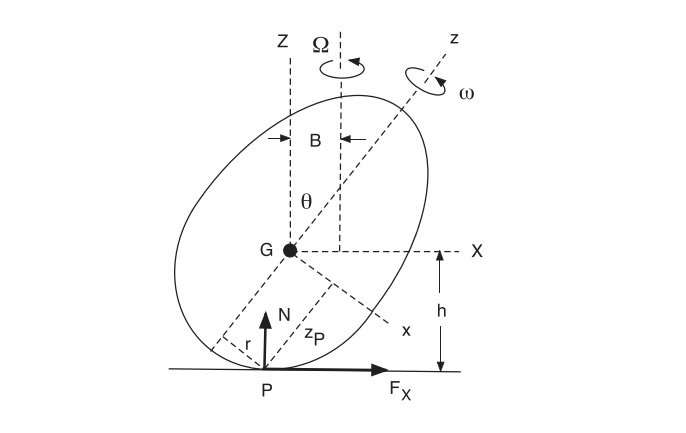March 13, 2018 feature
Why does a spinning egg stand up?

If a hard-boiled egg is spun fast enough on a table, it will slowly stand upright as it continues to spin. Although the spinning egg rises due to the force of friction between the egg and the table, the full explanation involves a relatively complex set of equations. In an attempt to explain the concepts to a broader audience, physicist Rod Cross at the University of Sydney has sought a simpler explanation of the rise of a spinning egg.
"Spinning eggs have been studied for more than 100 years, but there has not previously been a simple explanation for the rise, either of spinning eggs or the tippe top," Cross told Phys.org. "The essential physics cannot be conveyed to an undergraduate student or to a physics teacher by explaining that an egg rises because the equations predict that it will rise.
"Part of the problem is that there have not been enough experimental measurements to pin down the separate roles of sliding and rolling friction in causing the egg (or tippe top) to rise and then causing it to stop rising if it is not spun fast enough."
In experiments with a solid aluminum spheroid, Cross demonstrated an important characteristic of the spinning egg, which is that it precesses (i.e., rotates) about two different axes. The obvious rotation is that in the direction which it spins, about the vertical axis. The egg also rotates about a horizontal axis as it stands up on its end.
The new study shows that rotation about the horizontal axis is due to precession, and that the precession itself is due to the horizontal friction force. If the egg starts rolling, then the friction force drops to zero and the egg stops rising.
On the other hand, the precession of the spinning egg about the vertical axis is caused by the normal force (from the table pushing up on the egg), rather than friction.
The experiments also confirmed another related characteristic of the spinning egg: the faster the egg spins, the more vertical it stands. If the egg spins too slowly, it won't rise at all. Again, the explanation can be traced back to the force of friction, since slow rotation causes the egg to roll instead of slide and stand up.
Cross also found similar explanations for the inversion of a tippe top and the slow fall and rapid precession of spinning coins.
More information: Rod Cross. "Why does a spinning egg rise?" European Journal of Physics. DOI: 10.1088/1361-6404/aa997b
© 2018 Phys.org



















